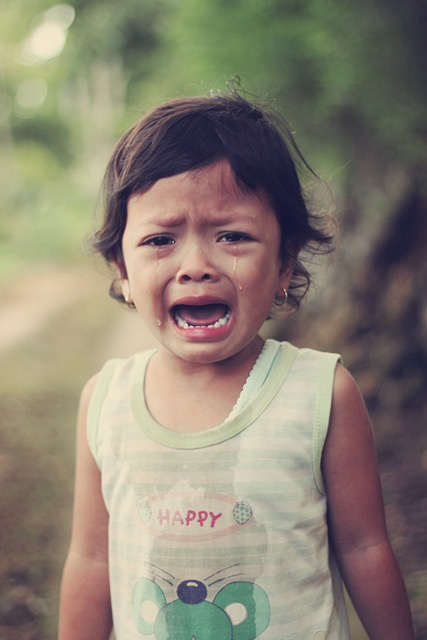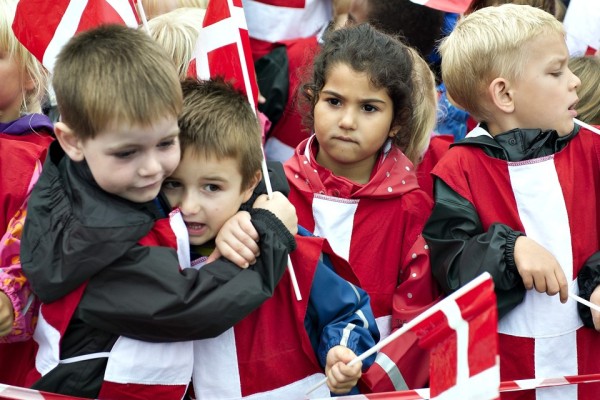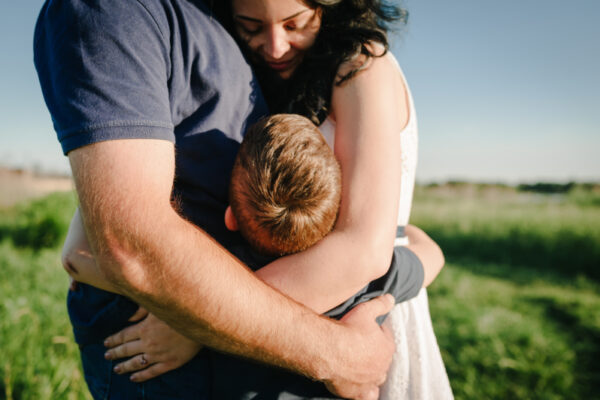Do not be afraid to talk about all feelings. There’s a reason they show up!
Some years ago, my family was hit by several sad events. Events that shook our foundation and burst the bubble of innocence, along with letting my children grow up with the belief that life lasts forever, and that everything is good and beautiful. It was as if illness and death struck our family like a string of pearls without end. Heartache hit when my children were 3 and 6 years old and both of rapid development, linguistically and cognitively.
I have never been afraid to articulate difficult feelings. I have a large capacity for holding a lot of emotion, and I believe strongly in looking at them in a critical way. At the time when our family was first confronted by the darker side of life, it was natural for me to act in a way that protected and looked after our children – as these events struck in and around my husband’s closest relationships. He was away from home often, as he had to keep up with his work as well as find time for hospital and hospice visits.
Because of the difficult situation that resulted in his absence, I let our children know what was going on early in the process, without going into too many details at first. My youngest daughter did not understand much, and what she needed the most was regular routines, and lots of presence and security, which I made sure to give her. She was still able to ask me why granddad was ill, and my answer to this was: “sometimes very old people become ill”, and she would be content with this simple answer. My oldest daughter had a much more abstract approach to thinking about it at the time – about what happens when you die, where you go after death, and small practical questions such as: can you still eat when you are dead? Is dying the same as when you are asleep? Can he still see us when he is dead? I attempted to answer all her questions with my understanding of her mindset and age while still being authentic and truthful. I did not overcomplicate my answers because it was unnecessary (but something many of us adults tend to do). I was relaxed and did not have trouble taking the time to talk with her – I am comforted that she found some answers and peace in the process.
Sadly, but also naturally, both girls participated in several funerals. They sang and drew beautiful artwork to put in the coffins, but most importantly they saw how life was torn apart but subsequently continued. Although this was tough, it served as an import life lesson, because life must continue even when life feels the worst.
After some time when things around us had calmed down and we were trying to continue on in life despite our scars, my oldest daughter suddenly began to feel anxious when the two of us were separated. When I was going to work or leaving the house she cried and did not like when I went away. Initially it was difficult for my husband and I to understand what had led to this change. She found it hard to put into words why she felt as she did but showed us clearly that she was frightened. It was frustrating, and we felt powerless, until I remembered my all-time mantra; that children do not act out negatively because they want to make life hard on us, but because they are attempting to tell us something of importance. When they fail to have the words to express these feelings, it can result in poor behavior. There is a reason behind every action, I remembered. Thank goodness for all my years of studying.
To ease my daughter’s anxiety, I created a cozy place for us. Together, we built a “tent” in her room with lots of blankets, snacks, and calm lighting where we could enjoy a cozy time together. Here, I offered her a place of security where she could feel my presence and find peace within. I helped her connect words to her fear about being apart, and I let her know that she should not be afraid because I was healthy and strong and would always come back. I really came to understand what she was terrified about; that I would die. The worst scenario for a child; that she would lose me too!
Whenever I left and disappeared from my daughter’s view, she connected my absence with the fear of death. She was consumed by this fear and could not stop crying, screaming and hyperventilating when I would leave her. Nothing hurts more than to see your child in such pain.
Although it was irrational, she had formed a story and understanding in her own head, out of her conclusions about what she had learned in life so far. People we love can disappear and not return. No one could blame her for this perception. Words and explanations about life’s big questions made sense to her, while we were in the middle of handling sickness and death, but on her emotional level she did not understand it fully.
After doing my best to heal her extreme response to my separation, I was able to understand where she was coming from. From there, it was easy to help her. Children are so intuitive.
A Step by Step guide to Helping your Child through Anxiety:
1) Remember, that there’s a reason behind every feeling or irrational action. Try to identify the underlying emotion, and do not blame your child for reacting to something, before you have figured out what this emotion is. Follow the mantra, there is always a reasonable explanation for your child’s behaviour.
2) If your child feels afraid or anxious, set aside your own needs and acknowledge your child’s feelings. Assure them that you are there now and will not be leaving them. First and foremost, your child needs your presence – not necessarily your words. Sit close without any expectations. Although we adults know that life is unpredictable and unfair at times, it is important to calm your child without too many complicated explanations. We shouldn’t involve our children in our adult thoughts.
3) Create a safe place physically or mentally. It can be something your child loves or a place he/she feels comfortable thinking about when the “scared thoughts” show up. It helps to think of something you love, while distancing the feeling responsible for leaving the child scared. A safe place is not the same as avoiding discussion around all kinds of feelings, it’s just a helpful place that allows for a better view on the situation.
4) When a child responds to something such as fear, it is often because there is something the child cherishes that is under some kind of threat.
Being able to meet the child on common ground is of huge importance for how the child will respond to you. We want our children to feel heard, acknowledged and loved. We can only achieve this if we understand what happened prior to a meltdown or negative reaction.
5) Should the situation occur often, take a breath and do not feel afraid to articulate and ask your child about whether the same fear is causing it. Start from step one and proceed without overreacting. How we teach our children to handle their feelings and perceive the world is crucial for how they will handle it as adults too.
I will leave you with this. Sometimes we believe we have all the right answers to our children’s irrational behavior, but I have learned that they – even young children – know much more about themselves than we might realize. Do you listen to what is being said – really listen? I have taught listening for years, and I have found that so often children will give you the answer you might not hear.
Share your thoughts on Facebook, Instagram or Linkedin – let’s all practice conscious parenting.
This article was originally posted on Psychology Today





